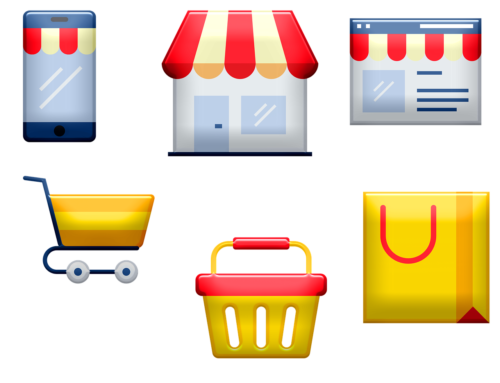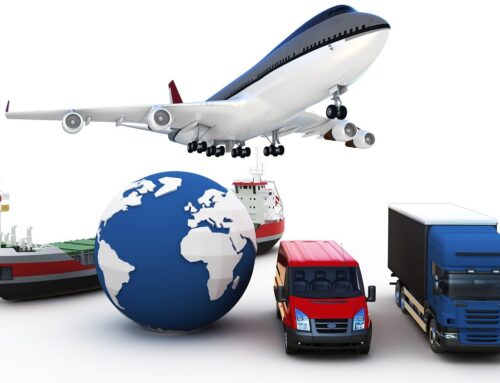The IoT (Internet of Things), objects and devices of any kind connected to The Internet, is already a reality, and that has come to make life easier for us. Anything that we can imagine can be connected to the Internet and interact without human intervention. It is predicted that somewhere between 20 and 50 billion devices will be connected to the Internet by 2020, depending on the source, and by 2030 this figure is projected to grow to more than 125 billion connected devices. Its applications are almost infinite, and the sectors in which this technology is applied are increasing on a daily basis.
WHAT IS INDUSTRIAL IOT (IIOT)?
Industrial IoT does not necessarily mean large systems and machines that carry out complex industrial processes. Industrial IoT can also be small sensor devices capable of providing data, information, and alarms that help to carry out daily business analysis taking simple automated actions or starting certain protocols automatically.
IIoT can be formally defined as “the use of smart sensors and actuators to enhance manufacturing and industrial processes. Also known as the industrial internet or Industry 4.0, IIoT leverages the power of smart machines and real-time analytics to take advantage of the data that dumb machines have produced in industrial settings for years.”
Below, we’ll look at how industrial IoT is changing the game for enterprises in five primary ways:
1.Predictive Maintenance
Keeping assets up and running has the potential to significantly decrease operational expenditures, saving companies millions of dollars. With the use of sensors, cameras and data analytics, managers in a range of industries are able to determine when a piece of equipment will fail before it does. These IoT-enabled systems can sense warning signs, use data to create maintenance timelines and service equipment before problems occur.
2.Asset Tracking
Equipment rental companies use industrial IoT to implement preventative maintenance for the various climate control, earthmoving, and truck rentals that their customers depend on. These monitoring solutions reduce the cost of sending mechanics into the field to deal with unforeseen breakdowns.
GPS-enabled IoT devices also provide rental companies with remote, real-time visibility into the location and distribution of assets in the field. Companies can use this data to improve logistics planning and customer care, arranging more optimal pickup and return areas.
3.Condition Monitoring
In the manufacturing sector, where operational efficiency and continuity are paramount, industrial IoT ensures efficiency in both maintenance and production. Industrial IoT offers cutting-edge solutions for tracking even the smallest moving parts in real-time. Using IIoT technology, manufacturers can better understand the environmental and usage factors that lead to machine failure. Such insights enable plant operators to improve their production processes by mitigating adverse factors—or eliminating them altogether.
4.Supply chain management
IoT enabled sensors to permit monitoring of events across a supply chain, providing access to real-time information by tracking inputs, equipment, and products. Sensors can be used to track inventory as it moves around the supply chain. This provides organizations visibility into inventories and more realistic timelines for material availability, work in progress, and so on.
5.Smart Metering
IoT has also introduced the manufacturing sector, utilities and other industries to the world of smart meters that can monitor the consumption of water, electric power and other fuels. IoT sensors allow organisations to gauge the specific use and deploy practices for more effective usage of resources.
6.Fleet Management
In Industrial IoT, the industries that depend on transportation such as, the business process and fleet management assist them to reduce or overcome the risks incorporated with productivity. Connected technology has empowered fleet businesses to attain greater efficiencies while controlling their fleets and reducing overall transportation and staff costs in a better way.
STARTING YOUR INDUSTRIAL IOT JOURNEY
The road to industrial IoT begins with implementing a reliable platform that provides all the hardware, software, and connectivity needed to construct your IoT system.
Some enterprises choose to build their own custom platforms from the ground up. This requires not only expertise in domain-specific engineering and infrastructural development, but also the resources necessary for scalability, network connectivity, and security.
One of the largest challenges that industrial companies met when estimating Industrial IoT is to find out “use cases” where it can be used to enhance operations. Above 6 cases represent most of the applications that industries come across which are utilized to generate business value.
Agilis World Inc.’s IOT Expert Team will give you a holistic view about how IoT will help to build an Industrial IoT Solution for your business.







Leave A Comment